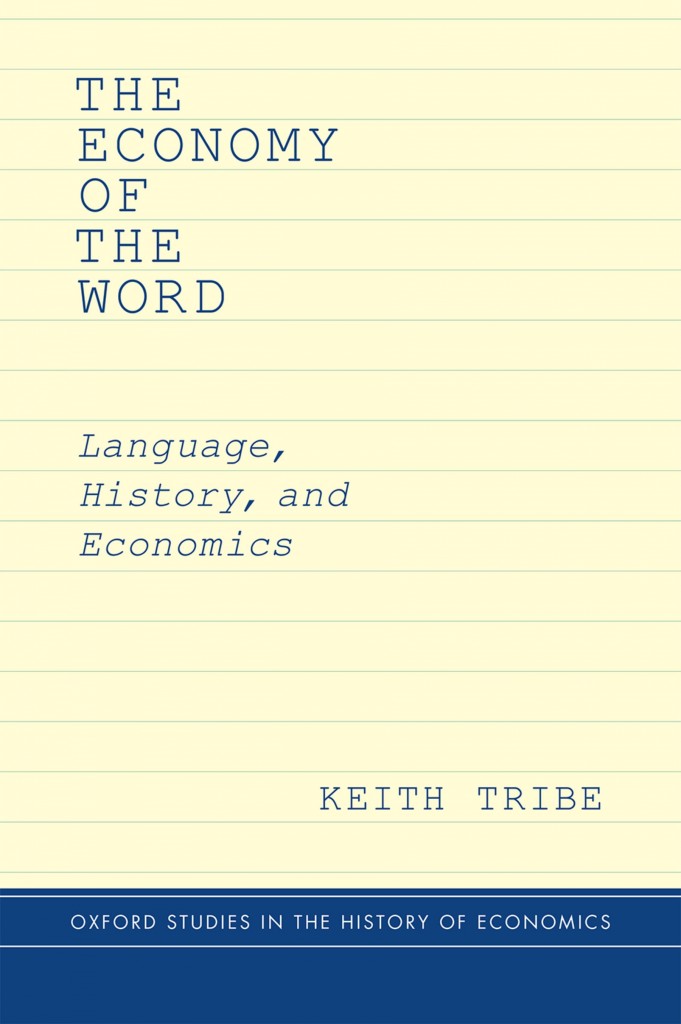Yesterday Roger Backhouse and I sent off to the publisher the files of the book we have been working on since last autumn, The History of Economics. A Course for Students and Teachers. As with the book that I edited with Pat Hudson and published last year, The Contradictions of Capital in the Twenty-First Century, Agenda will quickly turn these files into a well-produced book and publish it in October this year. Conceived around this time last year, the book itself was written alongside our teaching the HET course to third-year economics undergraduates at the University of Birmingham, a course of twenty two-hour lectures covering a period from the later seventeenth century to the present day. Our plan was to convert our lecture presentations into a written form as a template for the teaching of the history of economics. This seemed quite a manageable task alongside all our other work, but it turned out to be more demanding than we had anticipated. Nonetheless, this was itself instructive.
The History of Economic Thought mostly disappeared from its former home, the undergraduate economics degree, by the later 1970s. Since that time no-one could hold out much hope of being hired in an economics department in Britain or the USA on the strength of expertise in the history of economics. Terence Hutchison had become Mitsui Professor in Birmingham in 1956 mainly on the strength of work in the history and methodology of economics. At the time, the Department of Economics was, with Nottingham, one of the strongholds of mathematical economics in Britain; even then, the idea that a Professor might be appointed on the strength of historical expertise met with resistance.
Criticism of the limitations of economics teaching in universities predated the Financial Crisis, its insistence on the esoteric at the expense of the blindingly obvious reflecting the institutional dynamics of career structures and research funding that have, if anything, since become more acute. But in the wake of the Crisis it became more common in the media to advocate the reintroduction of economic history and the history of economic thought, if only to provide students with some wider perspective than the imperatives of the immediate present. Besides the predictable resistance of the established profession, two problems stood in the way of this project: who would teach it? What would they teach?
Since hardly anyone has been able to make a living teaching the history of economic thought over the last forty years, the present stock of specialists is sharply divided between the remnants of an older generation (like Roger and myself) and a younger generation typically in their 20s or early 30s. This is not so obvious in Britain, but very obvious in France, Italy, Australia and the USA. it would be the younger generation who could teach courses, but since many had not themselves ever been taught such a course they lacked an accessible point from which to begin.
Which brings us to the purpose of our book: to provide a practical template for such teaching. it is not a textbook, in the sense of providing a comprehensive overview of a field. I think of it as a “coursebook”, a guide to structure and materials in approaching the history of economic thought of the kind that lectures seek to convey. In presentation it mimics the lecture format: it is a sequence of twenty-four lectures, each of which begins with aims, a chronology, an annotated bibliographic guide, before presenting an outline of the material and concluding with questions for discussion. It is assertive: it seeks above all to present a defensible account, but does not become entangled in defending the way in which this account is put together. The purpose of lectures is to provide a point of entry to a subject, not deal exhaustively with it; our book has the same aim. At the same time, it has a larger purpose: to provide a framework around which novice lecturers might construct new courses.
Until I began teaching on the Birmingham course in 2005 I had never had the opportunity to teach the subject, although this had long been my main interest. Putting together my first lectures on Smith to Keynes I was pleasantly surprised to find that, over the previous thirty years, I had covered enough of the material to be able to make a course work. During the past few years, where I have been responsible for teaching the period up to 1900, what was originally a series of topics has become developed into a story about the European dimension of the history of political economy. What originally appeared to be predominantly a British story has now been rewritten in a European framework that, in the course of the nineteenth century, extends to the USA. And so what began as a course of lectures in a British university has been revised and corrected into a story about political economy as a broadly European discourse, since the later seventeenth century at the latest.

